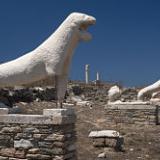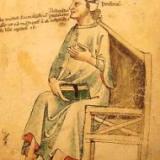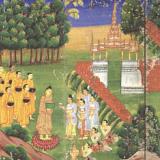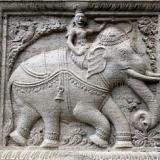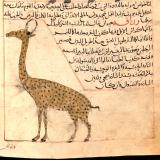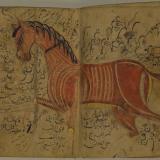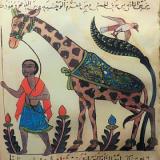Animals
Posted on
Aristotle’s scientific outlook is perhaps best displayed in his zoology. Peter looks at his theories of inheritance, spontaneous generation, and the eternity of animal species.
Posted on
Porphyry fuses Platonism with Aristotelianism, exploring Aristotle’s logic and Plotinus’ philosophy. He also finds time to argue for vegetarianism.
Posted on
Medieval ideas about what animals do and do not have in common with humans, and how we should treat them.
Posted on
Vegetarianism and non-violence (ahimsa) in ancient Jainism, Buddhism, and Hinduism.
Posted on
An interview about the status of nonhuman animals in ancient Indian philosophy and literature.
Posted on
Princess Anna Komnene makes good use of her political retirement by writing her Alexiad and gathering a circle of scholars to write commentaries on Aristotle.
Posted on
Ignatius Sancho and Benjamin Banneker make their mark on the history of Africana thought through letters that reflect on the power of sentiment.
Posted on
Pico della Mirandola and Giannozzo Manetti praise humans as the centerpiece of the created world. But what about the other animals?
Posted on
An interview with Cecilia Muratori, an expert on the surprisingly modern ideas about non-human animals that emerged in the Renaissance.
Posted on
In this first of four bonus episodes on animals and Islamic philosophy, Peter sets some context by surveying ideas about animals in Greek, Indian, Chinese, and African philosophy.
These episodes draw on work done with the support of the project “Animals in the Philosophy of the Islamic World”, which has received funding from the European Research Council (ERC), under the European Union’s Horizon 2020 research and innovation programme (grant agreement No. 786762).
Posted on
In this second of four bonus episodes on animals and Islamic philosophy, Peter talks about the standard view that reason differentiates humans from animals, and challenges posed to this view from medical theory and Islamic theology.
These episodes draw on work done with the support of the project “Animals in the Philosophy of the Islamic World”, which has received funding from the European Research Council (ERC), under the European Union’s Horizon 2020 research and innovation programme (grant agreement No. 786762).
Posted on
In this third of four bonus episodes on animals and Islamic philosophy, Peter looks at texts from the Islamic world arguing for benevolence towards animals.
These episodes draw on work done with the support of the project “Animals in the Philosophy of the Islamic World”, which has received funding from the European Research Council (ERC), under the European Union’s Horizon 2020 research and innovation programme (grant agreement No. 786762).
Posted on
In this fourth of four bonus episodes on animals and Islamic philosophy, Peter asks what difference it would make if humans are unique among animals in being rational.
These episodes draw on work done with the support of the project “Animals in the Philosophy of the Islamic World”, which has received funding from the European Research Council (ERC), under the European Union’s Horizon 2020 research and innovation programme (grant agreement No. 786762).

